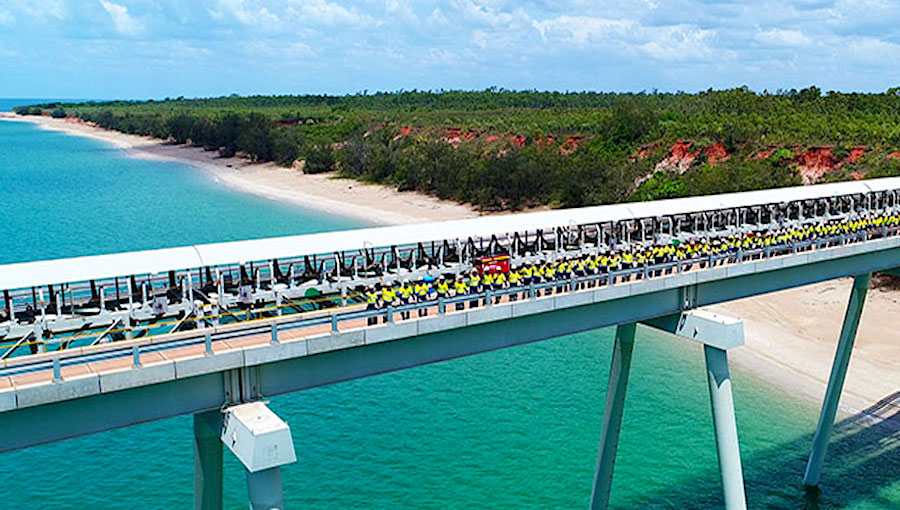Australian resource companies are becoming renewable energy believers — opinion

It’s not quite yet a flood but Australian resource companies are increasingly embracing renewable energies into their mining and natural gas operations even in the face of a federal government that veers toward climate scepticism.
Among recent developments are moves by Rio Tinto to convert its iron ore trains to hybrid power, the commissioning of a solar power plant at an oil and gas facility operated by Santos in South Australia state, and battery storage being integrated into ConocoPhillips’ liquefied natural gas (LNG) plant in Darwin.
There are several other projects being undertaken or in place already, and it seems that momentum is growing among companies to look at ways of reducing the use of fossil fuels in mining and oil and gas operations.
The shift is significant given Australia is the world’s largest exporter of iron ore and LNG, and vies with Indonesia as the world’s biggest supplier of coal to the sea-borne market.
It seems that momentum is growing among companies to look at ways of reducing the use of fossil fuels
Resource companies have been criticized by some environmentalists for not being proactive in meeting the challenges posed by climate change, and recent comments by several chief executives show an increasing awareness that maintaining public support is going to be dependent on doing more to be a responsible corporate citizen.
Cynics may suggest that resource companies are doing too little too late, and what they are doing is geared more toward public relations, with an element of cost-saving flung in for good measure.
However, this doesn’t take into account that major corporations tend to be slow-moving beasts and it takes time to shift thinking, develop plans and get approval from company boards.
What appears to be happening is that resource companies are looking at ways of achieving three goals, which happen to be compatible.
Firstly, renewable energy technologies will only appear in mining and oil and gas operations if they make economic sense.
With solar panels, batteries and other technologies dropping in price as they become more widespread, it becomes feasible to look at switching, especially for many of Australia’s remote mining and natural gas operations, which currently rely on expensive diesel for much of their power.
Secondly, while Australian resource producers currently don’t face a price on carbon, the executives can read the tea leaves and probably believe a price is inevitable in the future.
The conservative Liberal-National coalition won a surprise federal election in May, edging out the opposition Labor Party, which had been favored in opinion polls leading up to the vote.
The Coalition is currently opposed to carbon pricing, while Labor is largely in favor, a situation that in effect means ongoing uncertainty for energy and climate policy.
Companies loathe this uncertainty, but a pragmatic board will realize that the Coalition is unlikely to rule forever, and may lose office at the next election, due in 2022.
Preparing for a price on carbon emissions thus becomes a sensible policy.
Winning hearts and minds
The third goal is public relations, with industry leaders repeatedly saying at recent conferences that they need to tell the positive stories about mining and oil and gas, and combat the more extreme views of some environmentalists who want an end to all minerals extraction.
If the companies can get the greening of their operations correct, not only can they save money, but they can also spin a positive narrative that makes them seem part of the solution to climate change, rather than part of the problem.
There is another market consideration from switching more of the running of mining and oil and gas operations to renewable power, albeit currently only a small factor.
Increased renewable power means lower consumption of diesel in particular, if trains, trucks and power generators can be fully or partially switched over.
The other factor is that some of the projects involving renewables are designed to replace the use of natural gas to power operations, such as at ConocoPhillips’ Darwin LNG plant.
In theory this should make more gas available for processing, which could either boost the volumes produced or lower the cost of production.
(By Clyde Russell; Editing by Christian Schmollinger)
{{ commodity.name }}
{{ post.title }}
{{ post.date }}




Comments